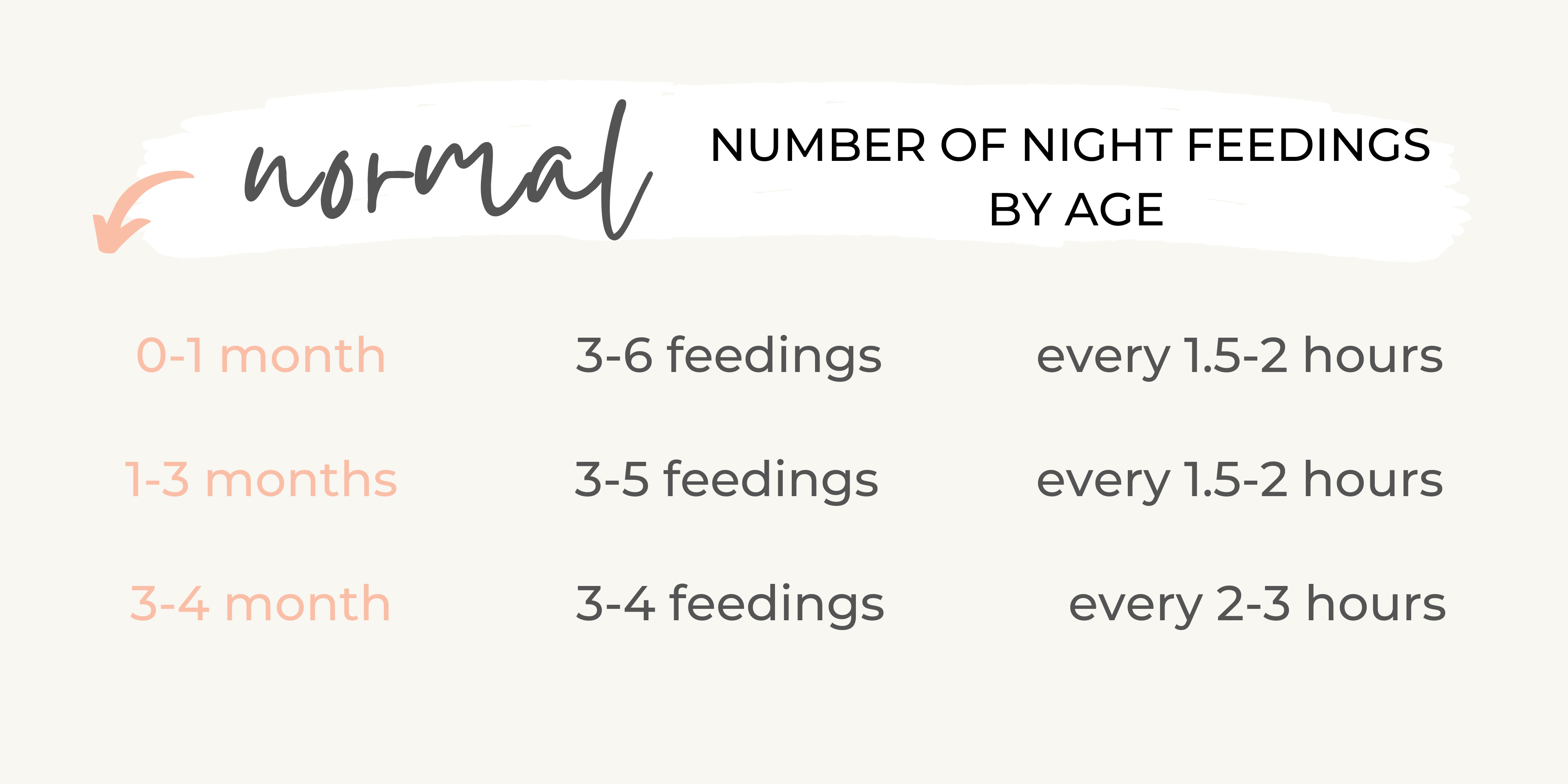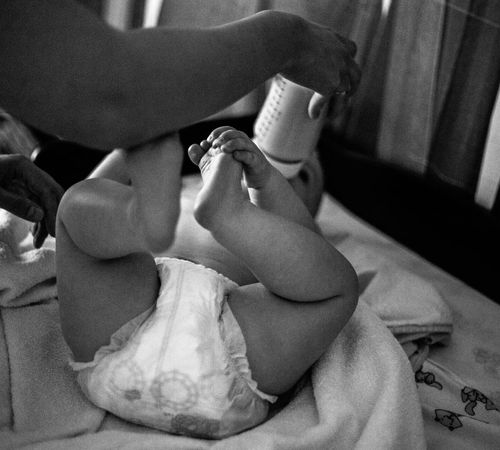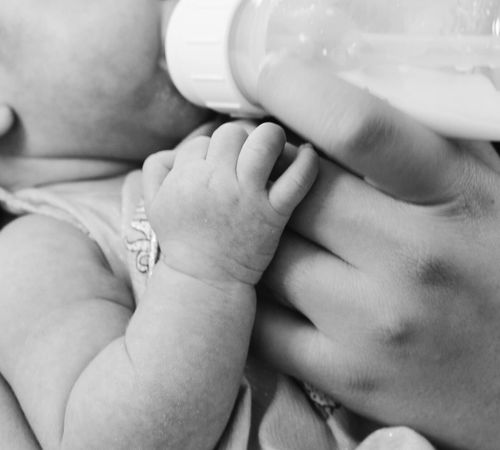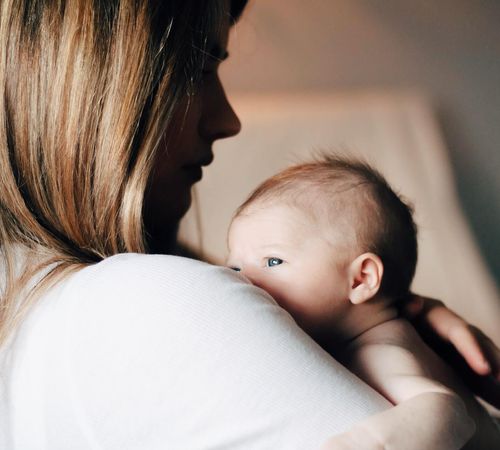Your little one prefers to party all night and sleep all day? Then your baby has probably their days and nights mixed up. Here is how you can improve or even resolve your baby's day/night confusion within just a few days.
So first of all, I don't want you to worry. I am pretty sure your baby is NOT a vampire. Even though you feel like in a horror movie where she becomes alive at night and you have turned into an actual zombie.
Now, with that cleared, you still have to deal with the problem that your little one prefers to sleep during the day and party all night.
I mean, do they not know the time?
Well, you and your baby are not alone.
It's actually very common for newborn babies to have their days and nights mixed up (no, I also don't think that vampire newborns assemble at night, but who am I to really know).
So let's find out why so many babies have day-night confusion and what we can do to fix this.
This article covers:
1. What Is Day Night Confusion?
We talk about day night confusion when your newborn sleeps during the day but stays awake for a couple of hours at night.
What happens is that they literally don't know when it's day and when it's night. So they sleep whenever they are tired with no regard to you or the sun or the moon, really.
2. Why Do Newborns Have Days And Nights Mixed Up?
Baby sleep patterns differ hugely from adult sleep patterns.
Before your baby was born, they got all their daytime cues from their mom. Melatonin production, body movement, and even mom's mealtimes helped regulate their sleep while in her womb.
Incredible right?
But once they were born, all those cues were gone, and now they cannot distinguish between days and nights.

They now need to develop their own inner 24-hour sleep-wake cycle, which tells them when it's time to sleep and when it's time to be awake.
This 24-hour sleep-wake cycle is also called circadian rhythm. Everyone has a circadian rhythm. It tells us when we are supposed to go to sleep and adjusts to our regular sleep patterns.
You may have noticed that most days, you will be tired in the evening at the same time and wake up in the morning around the same time, even if you don't set your alarm.
That's your circadian rhythm that already has a fixed sleep-wake pattern.
But newborns don't have this regular pattern when they are born. That is why their days and nights are mixed up.
They still need to develop it by having regular nap and bedtimes and being exposed to daytime cues. Other sleep behaviors like multiple night wakings and early morning wakes are also normal and result from an undeveloped circadian rhythm. For the first 3 weeks, my baby would wake up for the day at 4 AM!
Especially in those first 1-2 months, your baby's sleep will be all over the place and usually evenly distributed over the day.
While it can take 6 months until your baby's circadian rhythm is fully developed, day night confusion will get immensely better within the first month.
If you have an older baby (4 months +), then your baby might experience something that is called split nights. Split nights are not the same as day-night confusion. They are a usually a result of too much daytime sleep. You can read more about split nights in the article below:
If your baby was sleeping fine and is suddenly constantly waking at night and having trouble napping during the day, they also might experience the 4 month sleep regression. You can read more about sleep regressions here:
3. How Many Night Wakings Are Normal?
Sometimes parents think their baby has day night confusion because they wake up very often at night.
But that does not have to be necessarily the case.
As new parents, we often don't know what is actually normal when it comes to baby sleep because it is so different from adult sleep.
Whoever invented the term sleep like a baby obviously never had a baby.
But you need to throw social expectations out of the window, and we need to normalize normal infant sleep behavior.
If your newborn baby is waking up to 6 times a night, it is, as sad as it might be, considered normal. Your baby is still very, VERY young and needs frequent night feedings.
So here is a little table to give you an idea of what normal baby sleep at night actually looks like:

If your baby is within that range and falls asleep quite fast after a feed, you don't have to worry about anything.
If your baby, however, cannot fall back to sleep after a feed or stays up for 45-60 minutes or more, then you might be dealing with day night confusion.
10 Steps To Fix Your Baby's Day Night Confusion Within A Few Days
Even though all this is considered normal baby sleep, and your baby will eventually figure out days and nights, you can still support this process by following a few simple steps. By starting with healthy sleep habits, you will also set the stage for better baby sleep in the future.
Here is what to do when baby has days and nights mixed up:
- Expose your baby to a lot of light
- Have low key night feeds
- Make days exciting
- Switch environments when you're up
- Use the swaddle for night feeds only
- Have a simple bedtime routine
- Prevent overtiredness
- Create a sleep-inducing environment
- Keep a 'normal' volume of noise at home
- Have low-key evenings
Step 1: Expose your baby to a lot of light
Always keep it very bright during the day. When you get up in the morning, open the blinds and let that natural light into the room.
A study with infants showed that babies exposed to a lot of natural light during the day adapt faster to the 24-hour sleep cycle.
Also, let your baby nap in a bright environment. Once your baby has developed a regular sleep pattern during the day, you can use black-out curtains for naptime as well. Until then, a dark sleep environment is not really necessary for daytime sleep.
Step 2: Have Low Key Night Feeds
When your baby is feeding in the middle of the night, they need to get the impression that it is the middle of the night. *Big yawn*
When you feed your baby, make sure to keep the light off. Have a very dim night light if you really need one. Have a quiet and calm atmosphere and avoid too much stimulation. And most of all, don't scroll your phone! The blue light will not only wake your baby, but you will also have more trouble getting back to sleep.
If a sleep consultant tells you not to look into your baby's eyes, you better run!
Don't worry, you are allowed to look in your baby's eyes. I cannot believe people are still telling this BS.
Step 3: Make days exciting
Use the day to interact with your baby. Talk to them, give them a massage, and kiss those cute little feet. Make the day interesting and exciting.
Your baby's awake time will not be very long when they are this young. They will only manage to stay up 30-90 minutes at a time, depending on their age. But use that time to interact with them.
Going outside is also a great option to get tons of fresh air and natural daylight. It will also make you feel so much better.
Step 4: Switch environments when you're up
Once you're up and ready to start the day, switch the environment, so your baby knows it's not night anymore.
Ideally, let your baby have their first feed in another room, or open the blinds and have a bright room greet them. But not in a way that will make them blind.
All of this will signal your baby that morning is here.
Step 5: Use the swaddle for night feeds only
If you are using a swaddle, then keep the swaddle on for night feeds.
During the day, get your baby out of the swaddle before you feed them.
Step 6: Have a simple bedtime routine
We all know how important a bedtime routine is for babies.
But at this age, you don't need a fancy bedtime routine just yet. Instead, short and simple steps are enough to signal your baby it's time to sleep.
Change the diaper, do a quick foot massage, and put on baby's PJs. You don't really need to do more. As your little one gets older, you can have a more extensive routine.
Step 7: Prevent overtiredness
Some parents try to keep their babies awake as long as possible because they hope their baby will sleep better at night.
Rookie mistake, my friend!
Overtiredness is a real thing for little babies. Especially newborns can easily get overstimulated by all the impressions and noises. So when missed sleep comes into play, I should warn you that you are about to lose my friend.
The goal is not to keep your baby awake as long as possible during the day. Whenever your baby shows sleepy cues, they are allowed to sleep. Don't force those little babies to stay up. It will only backfire. They will have a harder time falling asleep, and they might wake up more frequently at night.
Step 8: Create a sleep-inducing environment
Setting up the ideal sleep environment is one of the first things you should do. The right environment can help your baby sleep much better.
Use a white noise machine to mask outside noises. Install black-out curtains (best investment ever) to prevent any unwanted light from coming into the room, especially in the summer. Use a sleep sack or swaddle. All these things are powerful sleep cues to your baby that signal: It's time to snooze!
Step 9: Keep a 'normal' volume of noise in your house
It doesn't have to be super quiet at home just because you have a newborn.
It's ok to have the everyday noises like the TV or a sibling playing pretend somewhere at a normal volume. There is no need to shield your baby from any noise.
In fact, it will help give your baby the impression that it's daytime.
Step 10: Have low-key evenings
While days should be filled with laughter and fun, evenings are the time to wind down. Dim the lights, turn off the TV, and create a calm environment. Engage in quiet play time by cuddling and massaging your baby. Let your baby unwind from the day.
5. Final Thoughts
By practicing all these steps mentioned above, your baby's day night confusion should improve very quickly. Sleep during the day will naturally decrease and be more concentrated at night.
This period of mixed days and nights will not last long, even though every night feels like a thousand nights. I get it. I've been there. Sleep deprivation is real! But your baby will adjust faster than you might think. Until then, try to use daytime to get some rest yourself.
And once your baby has their days and nights figured out, nighttime sleep will get more consolidated, and daytime naps will have a more regular pattern.








